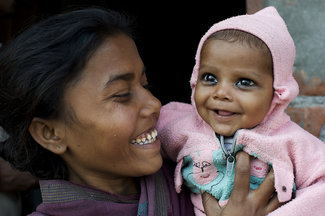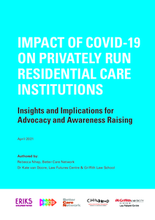

Displaying 171 - 180 of 753
This paper, based on an extensive desk review, chronologically examines the evolution of aftercare laws and practices in India along with the factors that contributed to the rise of institutional care.
"A steady stream of men have fled Afghanistan for Australia," says this article from SBS News, "but despite being recognised as refugees and granted protection, they have since faced never-ending visa delays for their wives and children to be able to join them. Some have now been waiting, alone, for more than 10 years."
In this webinar the speakers discussed the implementation experiences and emerging lessons of COVID-19 response strategies of seven programmes that prioritize nurturing care and early childhood development in their work.
In this webinar, panelists will discuss the implementation experiences and emerging lessons of COVID-19 response strategies of seven programmes that prioritize nurturing care and early childhood development in their work.
According to this article from the Hindu, "a police team [in Bengaluru, India] uncovered an inter-State child trafficking racket. Two women, who are allegedly part of the racket, were arrested on Monday."
A 52 year-old man has been arrested on the charge of sexually abusing four minor boys at an orphanage, of which he is the warden, in the Indian city of Mangalaru, according to this article from the Hindu.
This is a video recording from the webinar: Constructing the foundations for legal identity in post conflict situations. This webinar shared findings from research that documents how Afghanistan, Georgia, Rwanda and South Africa have made registration of vital events more accessible by adjusting or removing legal and institutional obstacles in post-conflict settings.
This study explores the effect of COVID-19 on a small number of privately run and funded residential care institutions by conducting a qualitative research study comprising 21 semi-structured interviews across seven focus countries.
This Webinar aims to discuss the impact of COVID-19 on children, youth, and their caregivers in alternative care.
"Thousands of Sri Lankan babies were put up for adoption between the 1960s and 1980s - some of them sold by "baby farms" to prospective parents across Europe," according to this article from BBC News.

